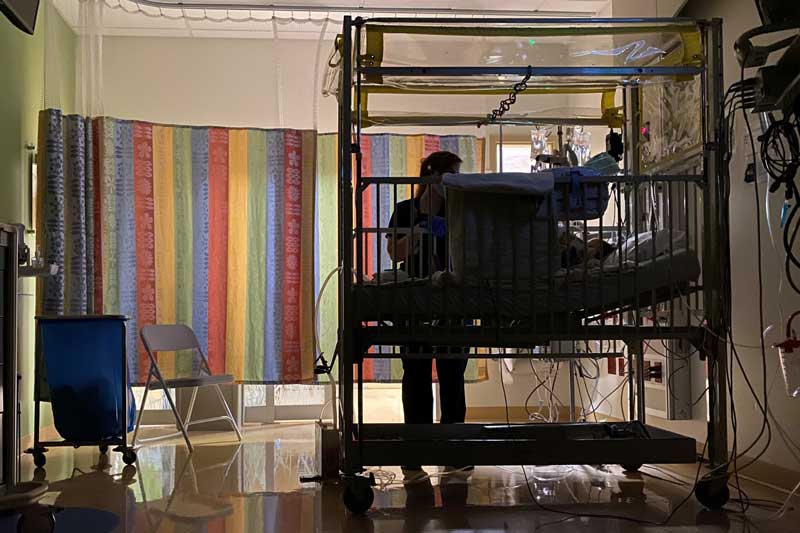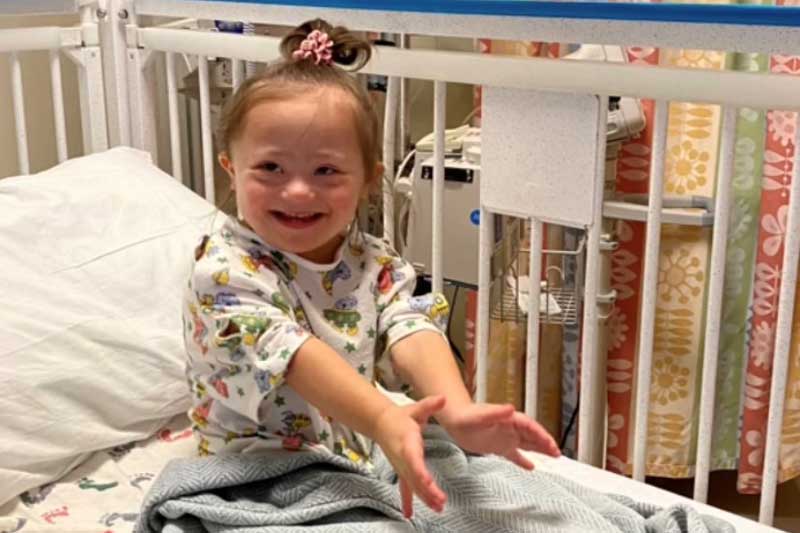Preparing Children for Heart Surgery

Ariel was born with an atrioventricular canal defect. Her mom watches over her as she awaits surgery.
If your child needs an operation, it will be performed at a hospital that has special expertise in heart surgery for children. This may be the hospital where your child normally receives care, or it may be a different hospital with particular expertise in the operation that your child needs.
It's important for your child to be as healthy as possible for the operation. During the two weeks before the day of surgery it's a good idea to keep your child away from people who have a cold or fever. If your child develops a fever, cough or cold during that time, talk to someone on the cardiology or surgical team to decide if the operation should be delayed. If your child is due for immunizations right before surgery, discuss the timing with your surgical team. It might be helpful to wait a short period of time after surgery.
Your child will be seen for preoperative counseling and testing the week before the scheduled surgery. At that visit it may be possible to arrange a tour of the hospital for you and your child. Common pre-operative tests include an electrocardiogram, echocardiogram, chest X-ray and blood testing.
Children are usually admitted to the hospital the morning of the operation or the day before. How long your child's operation will take and how long your child will need to be in the hospital depends on your child's heart condition and the operation that's being done.

Ariel was born with an atrioventricular canal defect.
Sometimes the operating schedule has to be changed unexpectedly because of an emergency. You and your child may need to be prepared if emergencies with other children lead to the delay or postponement of your child’s operation.
It's important to you prepare yourself, as well as your child, for the operation and hospital stay. Your child's cardiac surgical team will give you information to help prepare for the preoperative evaluation, surgery and hospitalization. Often there are nurses, child life specialists or social workers who are specially trained and available to answer your questions. Touring the hospital before the operation may help you and your child better understand what the hospital stay will be like.
To make your child more comfortable in the hospital, bring their favorite toys, pictures, blankets, pillows or other things that remind your child of home. You should ask in advance about the hospital's visiting times and policies about who can visit your child. Often parents and guardians are allowed to stay overnight in the room with their child. If not, many hospitals have overnight accommodations for parents and guardians within the hospital or in the neighborhood.





